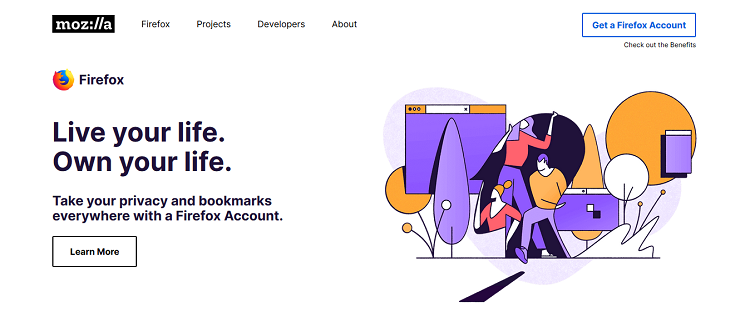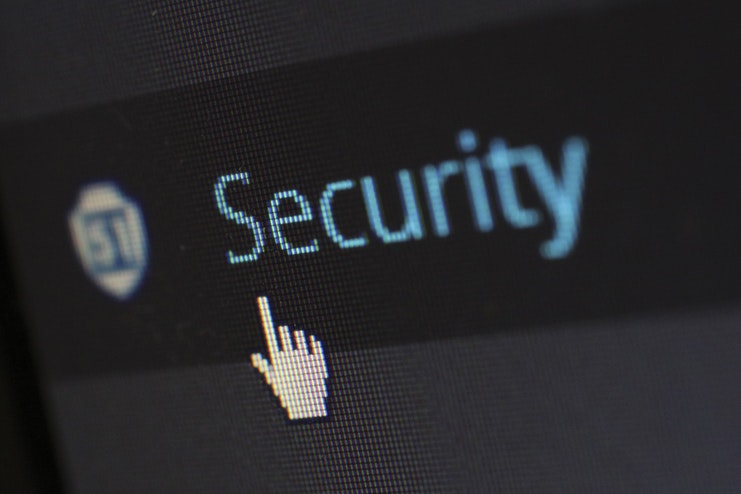The internet is no longer a luxury but a requirement. Much of the developed world spends quite a bit of time glued to their screens. In fact, according to the numbers, it is estimated that the average adult is online for around six hours a day.

Now, this statistic isn’t that shocking. After all, the internet is used for virtually every aspect of your life – both professional as well as personal. However, as your dependence on this commodity increases, so must your security capabilities.
Understand, criminals have taken advantage of the fact that a majority of the population is reliant on the internet. It is estimated that the damage done by cybercrime will be around $6tn in just a few years’ time.
This is why it is vital that you follow the advice provided below, every time you go online:
Opt for a secure browser

Although it is not something you would like to think about, data is money. This is why quite a few “trustworthy” browser creators are actually not as secure with your information as you might think. There are a number of companies that will sell your browsing habits and more for a tidy sum.
Now, on the surface, this may not seem like such a big deal as long as the data is protecting personal information. However, when you think about the fact that this information is used to tailor everything that you see online, it is considered an invasion of privacy.
This is why it is best to stick with website browsers such as Mozilla Firefox. It is a non-profit developer and so, is less likely to part with your information. What’s more, it also offers plenty of privacy settings to keep your tracks well covered.
Stick to safe browsing
There are quite a few risks involved in visiting dodgy websites. The best-case scenario is that they will steal personal information. It can be even worse than that and you could end up downloading malware or viruses onto your computer.
An easy way to reduce the risk of this happening is to use a good anti-virus and anti-malware software. There are numerous programs that help to manage your online activities as well. Thus, when you are about to enter an unreliable website, they will prevent you from doing so. While this may seem a tad bit annoying, it will actually be quite useful in the long run.
Know who you are talking to

As you know, you are constantly meeting new people online. This may be through social media sites, dating apps, and more. Considering how commonplace this is, you may not put too much thought into it.
Nonetheless, there are quite a few online scams out there at any given time. Scammers will try to gain your trust and find different ways of stealing from you. Some of these activities can even turn into real-life crimes or violence.
This is why you need to be sure of who you are speaking to online. The easiest way to manage this is to check out names and profiles on sites such as Check People. You will then be able to verify whether or not the information they have provided is legitimate. Even then, though, you should proceed with caution.
Limit the information you provide
These days, most people freely offer information about themselves online. This is because it is easy to get lulled into a false sense of security. Since you are unlikely to actually interact with your online “friends” or followers, you may feel like you can tell them details that you wouldn’t part with in real life.
Well, it is time to put an end to this. It is important to remember that everything you post can be considered a breadcrumb. This can include tweets about your whereabouts if you are stuck in traffic or posts of you eating out with your best friends. Whether you know it or not, you may be providing someone with quite a few personal details.
So, the next time you want to post something, stop for a moment and think about it. Are you unknowingly telling somebody where you live, work, or hang out? Or, perhaps are dropping clues about what your schedule is like? By being more careful, you can help keep yourself a lot safer.
The Internet is forever
When you meet people in public, face-to-face, there are certain social norms that need to be followed. Thus, you have to be polite to people, even if you don’t like them or disagree with them. When you are online, though, it can feel as if all these social niceties have been stripped away.
This is why it is common for people to post remarks or comments that they typically wouldn’t. They feel their online and real identities are separate from one another. Well, what you might be forgetting, though, is that the internet is forever. This means that somewhere, there is a log of everything you have ever said or done online.
Not only can this be rather embarrassing for you, but it can also derail your educational or professional career. These days, many schools and employees will go through someone’s social media accounts, blogs, and more. This gives them a better idea of what kind of person you are. If they find anything they don’t like, they may end up denying you a place at their school or company.
Always do your research
Last but certainly not least, you can’t afford to be naïve when you are online. So, before you shop on a particular website, make sure it is legitimate. This can easily be done by checking out the reviews. In fact, this is something you should do prior to downloading an app as well. You can never be too careful.
The same advice extends to joining new social media sites or any site at all. Always be sure of the terms and conditions that you are signing up for. In particular, be aware of the privacy notices in place. A little consideration now can save you quite a bit of pain later on.
These are the main things you should follow every time you are online. They can help to keep you safe and secure both in the digital world as well as in the physical one.



